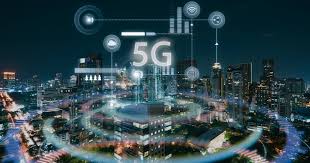Introduction: The AI Revolution
As we progress through 2024, generative AI has moved beyond the realm of tech enthusiasts and into the fabric of everyday life. This transformative technology is reshaping various industries, enabling new levels of creativity, efficiency, and personalization. From healthcare to entertainment, generative AI’s applications are vast and varied, promising to enhance how we live and work. This article explores the impact of generative AI on different sectors and its implications for the future.
1. Revolutionizing Healthcare
In healthcare, generative AI is making significant strides in diagnostics and personalized medicine. AI algorithms can analyze vast datasets, identifying patterns that may not be apparent to human practitioners. For instance, generative AI tools can create synthetic patient data to help train medical professionals and develop better diagnostic tools. This capability not only improves the accuracy of diagnoses but also accelerates the development of treatment plans tailored to individual patients.
Moreover, AI-driven drug discovery is transforming the pharmaceutical industry. By simulating molecular interactions and predicting drug efficacy, generative AI expedites the research and development process, reducing the time it takes to bring new medications to market. As a result, patients benefit from faster access to innovative treatments, and healthcare providers can offer more effective care.
2. Enhancing Creativity in the Arts
In the creative industries, generative AI is serving as a collaborative partner for artists, musicians, and writers. AI tools like OpenAI’s ChatGPT and DALL-E have empowered creators to brainstorm ideas, draft narratives, and generate visual content. For example, graphic designers can use generative AI to create unique artwork or assist in visualizing concepts, pushing the boundaries of creativity.
In music, AI algorithms can compose original scores based on specific inputs, enabling musicians to explore new genres and styles. This democratization of creativity allows individuals without formal training to experiment with artistic expression, fostering a more inclusive creative landscape. However, this raises questions about authorship and intellectual property, as the lines between human and AI-generated content blur.
3. Transforming Business Operations
Generative AI is also making waves in the business world, particularly in marketing and customer service. Businesses are leveraging AI to generate personalized content and campaigns based on consumer behavior and preferences. This ability to tailor messages at scale enhances customer engagement and drives sales.
Additionally, generative AI is improving customer service operations. Chatbots powered by AI can provide instant responses to customer inquiries, streamlining support processes and freeing human agents to handle more complex issues. This not only enhances customer satisfaction but also reduces operational costs for businesses.
Conclusion: A New Era of Possibilities
As generative AI continues to evolve, its influence on everyday life will only grow stronger. In 2024, we are witnessing a paradigm shift across industries, where AI not only enhances efficiency but also fuels creativity and innovation. While the benefits are substantial, it is crucial to navigate the ethical implications of AI’s rise. As we embrace this technology, ensuring responsible use and safeguarding against potential misuse will be essential for a balanced future.

